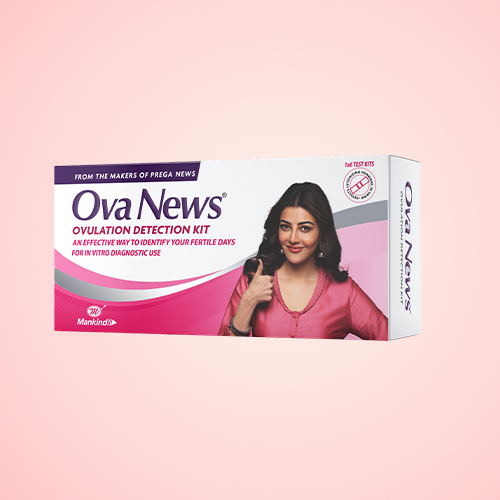Getting Vaccinated During Pregnancy – What to Expect?
When you are pregnant, the focus is naturally shifted towards ensuring a safe, healthy and happy pregnancy leading to a safe childbirth and healthy baby. From the moment you see the two pink lines on the Prega News home pregnancy kit, you focus on doing everything right for your little one. While many talk about maintaining an ideal weight and eating healthy during pregnancy, there’s little conversation around vaccines and their importance during pregnancy. However, this too is an important aspect of pregnancy that should not be overlooked. Vaccines during pregnancy are based on your existing health conditions, any threats, lifestyle etc. The best approach is to consult your doctor and get the vaccines recommended. Another way of going about this is consulting your doctor while planning a baby, so your doctor can recommend any pre-pregnancy vaccines if needed. However, if you are already pregnant, here’s a look at the vaccination recommendations and needs during this time.
Recommended vaccines
While the exact vaccines are often decided by your doctor depending on your age, health conditions, previous immunization records and other such factors, there are a couple of vaccines almost always recommended for pregnant women:
- Flu or Influenza Vaccine: This vaccine is usually considered safe to take during any time of pregnancy, more so if you’re pregnant during the flu season. This prevents both mother and baby from the flu.
- Tetanus/Diphtheria/Pertussis or Tdap Vaccine: This vaccine is recommended for pregnant women and can be taken at any time during pregnancy, although it is recommended to get it between 27-36 weeks.
Apart from these vaccines, your doctor may recommend some other vaccines depending on your overall health.
- Hepatitis A Vaccine: This is generally recommended for women with chronic liver disease or if they are living with someone who has Hepatitis A. If your dose is scheduled during pregnancy, it is generally safe to take the same.
- Hepatitis B Vaccine: If you are a healthcare worker or are at risk for the same, this may be recommended for you during pregnancy.
- Hib Vaccine (Haemophilus influenzae type B): This is recommended for women who lack a functioning spleen. If you need the vaccine, it can be given during pregnancy.
- Pneumococcal Vaccine: If you have diabetes or kidney disease (not gestational diabetes), you may be advised to take the Pneumococcal vaccine to prevent certain types of pneumonia and it is safe to take it during pregnancy.
What are the risks?
While the above mentioned vaccines are generally considered safe during pregnancy, you should consult your doctor before taking any vaccine shots. Your doctor will analyze your overall health, age, weight, lifestyle and other factors before giving you the pregnancy vaccines’ list. While there’s little to no risk with vaccines during pregnancy, one must ensure that the clinic or doctor is authorized to administer vaccines during pregnancy. You should also double check the hygiene conditions of the clinic or doctor’s chamber and make sure that you get a clean and sterilized vaccine kit. Apart from taking precautions, there are some vaccines which are not recommended during pregnancy as they can potentially harm both baby and the mother:
- HPV or Human papillomavirus: This is recommended before or after pregnancy and not during the pregnancy. Your doctor will tell you if you need one, depending on your health and previous vaccinations.
- Measles, mumps rubella or MMR: This is also not a vaccine that is recommended during pregnancy. Your doctor may do a routine check-up pre-pregnancy and recommend it if you are at risk.
- Chickenpox: This is also not recommended for pregnant women and should be taken before or after pregnancy.
Apart from these precautions, your doctor will be able to guide you best to prevent any health risks while taking vaccinations during pregnancy.
What is the best time to get vaccinated?
Each vaccination has a specific recommended timeline. Thus it’s ideal to consult your doctor while planning a family to get a full recommended list of vaccines for pre-pregnancy, during pregnancy and post pregnancy. The best time is also determined by your previous vaccinations and how long ago they were administered, apart from other factors like regular health check-ups, blood tests and hereditary conditions.
It is recommended to get the MMR and chickenpox vaccine before you get pregnant while the influenza and Tdap are recommended during pregnancy. Any booster doses or other essential vaccines can be scheduled post birth with your doctor’s consultation. However, it is a good idea to consult your doctor as soon as you plan a family or conceive so your doctor has ample time to schedule the necessary vaccines.
FAQ
Are vaccines safe during pregnancy?
With your doctor’s consultation, some vaccines like influenza and Tdap are not only safe but also essential to take during pregnancy. Apart from these, your doctor may also recommend other vaccines, depending on your health conditions and potential risks. While some vaccines are generally considered safe during pregnancy, the best way to find out is by consulting your doctor for a personalized list of recommended vaccines during pregnancy.
Will it affect my fertility?
As long as your doctor gives you a go-ahead for your pregnancy vaccinations, it should not affect your pregnancy or your chances of conceiving later. If you have any doubts about any vaccine or other factors affecting fertility, it’s best to consult your doctor for the same.
Which vaccines should I get if I am pregnant?
When you’re pregnant, the influenza and Tdap vaccines are recommended. Apart from this, your doctor may recommend additional vaccines depending on your overall health conditions, potential threats, previous vaccines and hereditary history.









































Leave a comment